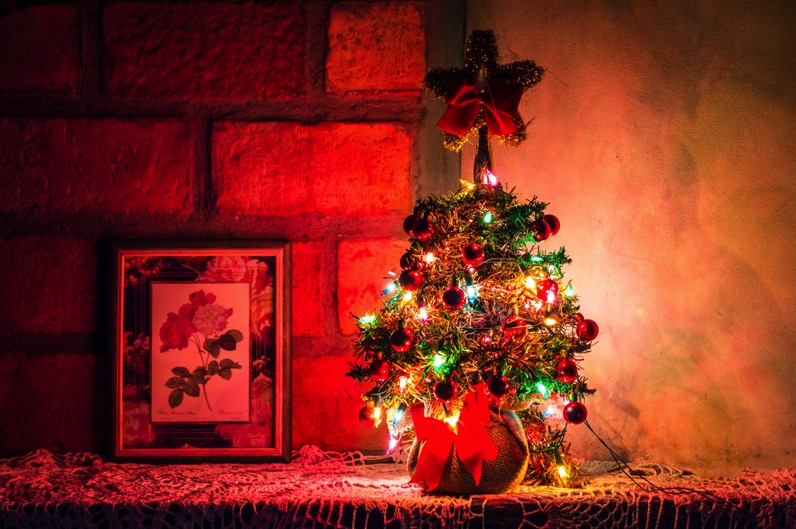HOHOHOHO… 356 days have passed already and everyone is excited to say Hello to the most magical day of the year: Christmas. Once again businesses, workers, families and friends get ready to celebrate a lovely and enjoyable Christmas at the end of December.
Traditional Christmas decorations can often be admired around cities and villages in most countries, even in those where Christianity is not the religion of the majority of people. Christmas trees are very popular in homes, beautiful Christmas wreaths hang on front doors to warmly welcome the visitors, and Christmas lights are a dazzling sight in the streets around the world as a cultural tradition.
At Christmas time, all Christians over the world celebrate a special feast on Christmas Eve or Christmas day in commemoration of the birth of Jesus Christ. They meditate in their prayers to bring peace around the world, health and hope to everyone.
Christmas Eve is a significant day made for spending time with family and loved ones over dinner, decorating, gift wrapping, carols songs and Christmas-themed movies, allowing them to get together and enjoy special and traditional activities from Europe, America to Asia.
The Ya-Hub Group has many clients around the world with different Christmas characteristics and traditions that caught my attention. Let’s highlight them:
- The French Christmas Eve Meal is called “le révellion”, which is a big and long feast for the whole family to gather together. The name comes from the verb “se réveiller”, to wake up or revive.
- Spanish love their nativity scenes and many towns display a public one, some of them stage a living “belén” with real actors and real animals.The Spanish Christmas Eve Meal is called “Nochebuena” and represents the end of the bag thing and the start of the birth of better things for everyone with the celebration of the Birth of Jesus Christ.
- An uniquely Italian tradition is the figure of an old woman called “Befana” who brings gifts on Epiphany Eve. Legend says The Three Wise Men came to her house and invited her to join the search for Christ. She was too busy with housework so she declined, but she regretted it and changed her mind and to this day, she is still searching for the child, leaving presents for any good children.
- Each single Portuguese Christmas table goes with a “Bolo-Rei”. A Bolo-Rei is a round shaped sweet, with a hole in its middle, topped with crystallized fruits and nuts inside. It is consumed between Christmas and Three Wise Men Day, which happens on January 8.
- Many Germans display a traditional wooden Christmas pyramid in their living room. This pyramid is a little carousel with angels and a nativity scene which stands on several levels and spins.
- While many Americans put up Christmas trees around Thanksgiving, Christmas trees aren’t put up in the Netherlands until after Sinterklaas on December 5 when children receive presents.
- The Mexican celebration of Christmas is called “las posadas” and begins on December 16. The children lead a procession to the church and place a figure of the Christ Child in the “nacimiento” or nativity scene there.
- In Chinese, Christmas Eve is called Ping’an Ye 平(píng)安(ān)夜(yè), which translates to peaceful or quiet evening. This name originates from the carol Silent Night, which in Chinese is called exactly that; 平安夜. The word for apple in Mandarin Chinese is 苹(píng)果(guǒ), which sounds like 平(píng)安(ān) – the Chinese word for peace. The Chinese have combined these two terms into 平(píng)安(ān)果(guǒ), , meaning peace apples and begun gifting apples to friends, colleagues and teachers on this day. These Christmas Eve peace apples aren’t regular apples, however. Eating one of these on Christmas Eve is supposed to bring you a safe and peaceful new year.
Ya-Hub has many customers in different countries and wishes them Merry Christmas in their native languages every year. Let’s start teaching you how to wish Merry Christmas in some of these languages:
- French: Joyeux Noël
- German: Frohe Weihnachten
- Spanish: Feliz Navidad
- Italian: Buon Natale
- Portuguese: Feliz Natal
- Dutch: Vrolijk Kerstfeest
- Swedish: God Jul
- Chinese: 圣诞节快乐 (Shèngdàn jié kuàilè)
How to say “Happy New Year”:
- French: Bonne Année
- German: Gutes Neues Jahr
- Spanish: Feliz Año Nuevo
- Italian: Felice Anno Nuovo
- Portuguese: Feliz Ano Novo
- Dutch: Gelukkig nieuwjaar
- Chinese: 新年快乐 (Xīnnián kuàilè)
Merry Christmas in the name of the Ya-Hub team and thank you kindly for your constant interest throughout this past year. The Ya-Hub Translations team wishes you all the best during this holiday season! It’s a nice time to read a Nativity book and understand more the story behind Christmas traditions and celebrations.
We wish you a very happy Christmas!! Fill your home with love, joy and peace. Take care of yourself and of your family and may your Christmas be bright and filled with promises.

